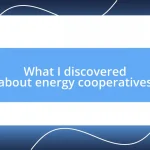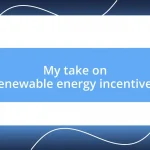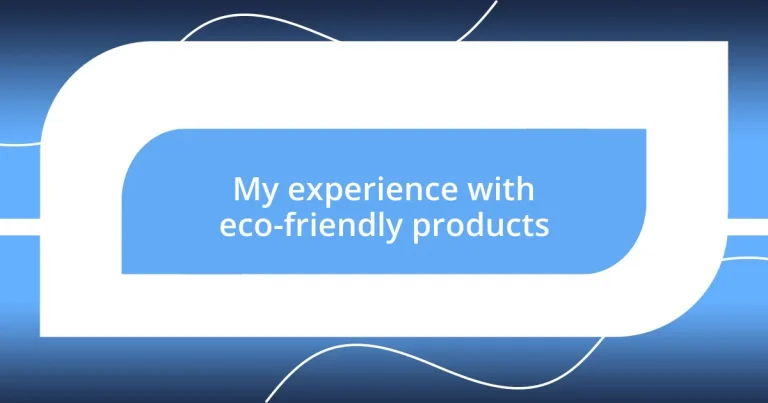Key takeaways:
- The realization of the impact of shopping habits led to a transformative journey toward eco-friendly products and alternatives.
- Switching to eco-friendly products improved personal well-being, supported local economies, and reduced concerns about harmful chemicals in the home.
- Challenges included limited product options, higher prices, and navigating misleading eco-friendly labels, emphasizing the importance of informed consumerism.
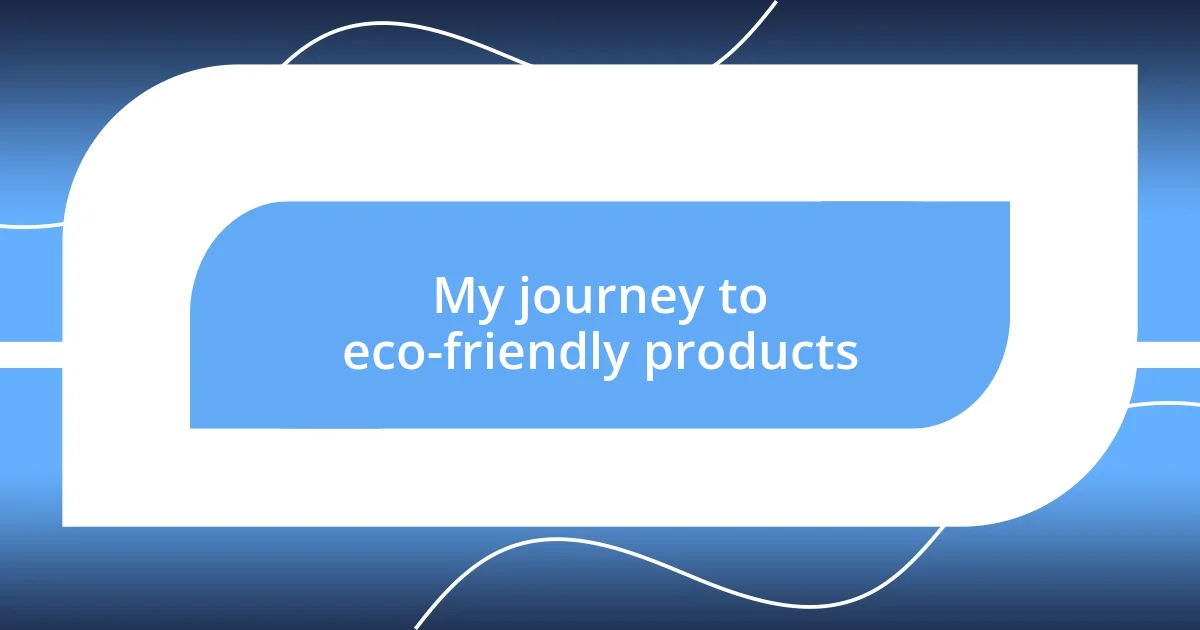
My journey to eco-friendly products
I remember the first time I realized my shopping habits were impacting the planet. Standing in the grocery store, I picked up a plastic bottle and wondered, “What happens to this after I toss it?” That simple question shifted my perspective and propelled me to seek out eco-friendly alternatives.
As I started to explore organic products, I stumbled upon a local farmers’ market. The vibrant produce, fresh and free from chemicals, awakened something in me. I couldn’t help but think, “Why hadn’t I experienced this before?” Each bite not only tasted better but felt like a small act of rebellion against the processed foods that filled my kitchen.
Transitioning to eco-friendly products wasn’t just a surface change; it was deeply personal. I started to document my journey on social media, engaging with a community that shared my passion. Their stories and victories inspired me on days when doubt crept in. Would I make a difference? Each positive decision—using reusable bags or switching to bamboo toothbrushes—transformed my guilt into empowerment, and that, I realized, was the very essence of my eco-friendly path.
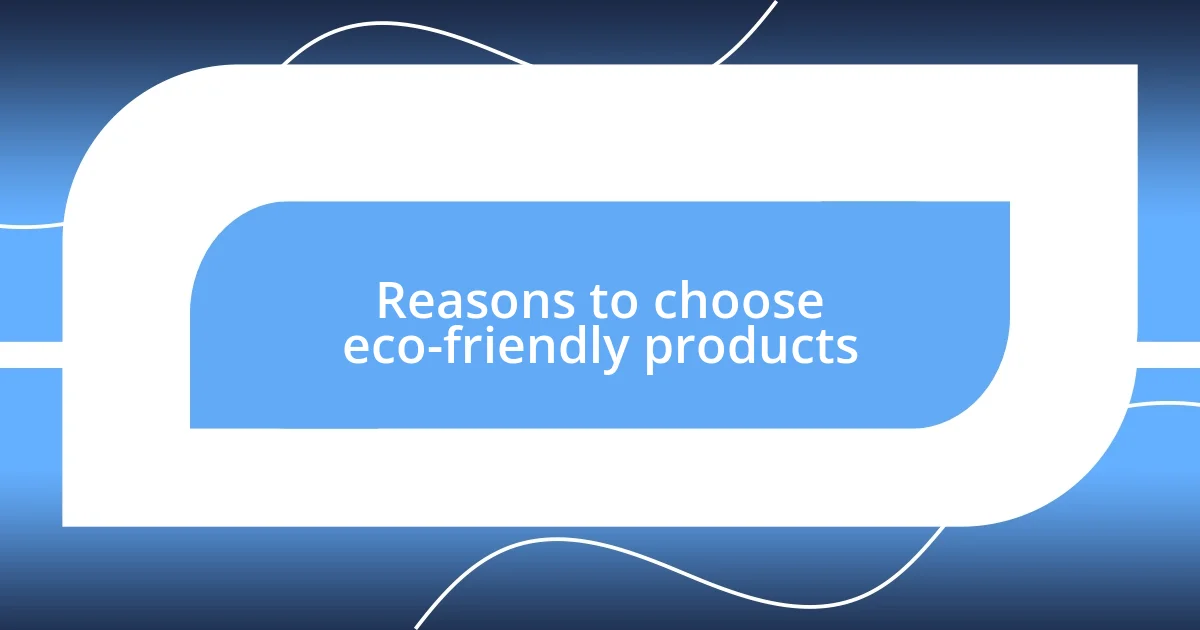
Reasons to choose eco-friendly products
When I made the switch to eco-friendly products, I noticed an immediate difference in my well-being and mindset. Knowing that my choices contribute to a healthier planet became a driving force. Each time I chose sustainable brands, it felt like lifting a weight off my shoulders, and I started to feel more connected to the world around me.
One crucial reason to opt for eco-friendly products is their potential to reduce harmful chemicals in our homes. I remember my first time ditching conventional cleaning products. Swapping to natural alternatives not only cleaned my space but also alleviated my concerns about toxins affecting my family’s health. It was remarkably liberating to know that my living environment was safer.
I’ve also observed that eco-friendly products often align with a deeper value system—supporting local economies and promoting greener practices. For instance, purchasing from a local artisan not only brings unique, handcrafted items into my life, but it also fosters a sense of community. This choice feels intentional, transforming an everyday purchase into a meaningful connection with both the product and its makers.
| Eco-Friendly Products | Conventional Products |
|---|---|
| Minimize environmental impact | Higher carbon footprint |
| Healthier for users | May contain harmful chemicals |
| Support local economies | Often mass-produced |
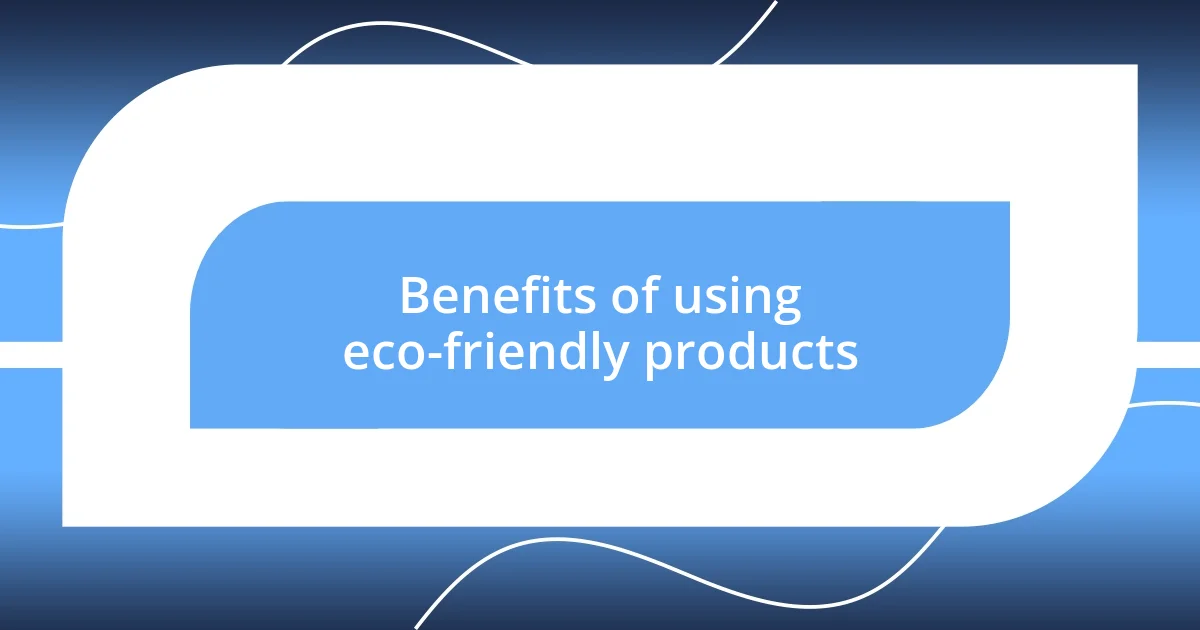
Benefits of using eco-friendly products
Using eco-friendly products has truly transformed my daily routine, and I can’t help but feel a sense of pride with each choice I make. For instance, I remember the first time I tried a completely biodegradable laundry detergent. Not only did it work wonders on my clothes, but I could also breathe easier knowing I wasn’t dumping harsh chemicals into the water supply. It was a small shift, yet it had a major impact on how I viewed the environment—every wash became a step toward sustainability.
The benefits stretch beyond just personal health; they resonate on a community level as well. When I started to purchase eco-friendly beauty products, I found that many of them were crafted by local artisans who poured their passion into each item. This connection became an emotional experience; I could envision the care and dedication behind each product, making me feel part of a larger movement. Here’s a quick summary of the benefits I’ve experienced:
- Better health: Reduced exposure to harmful chemicals in everyday items.
- Environmental impact: Lower carbon footprint and less waste in landfills.
- Support local businesses: Boosting community economies through conscious purchasing.
- Enhanced product quality: Eco-friendly options often prioritize quality ingredients and ethical sourcing.
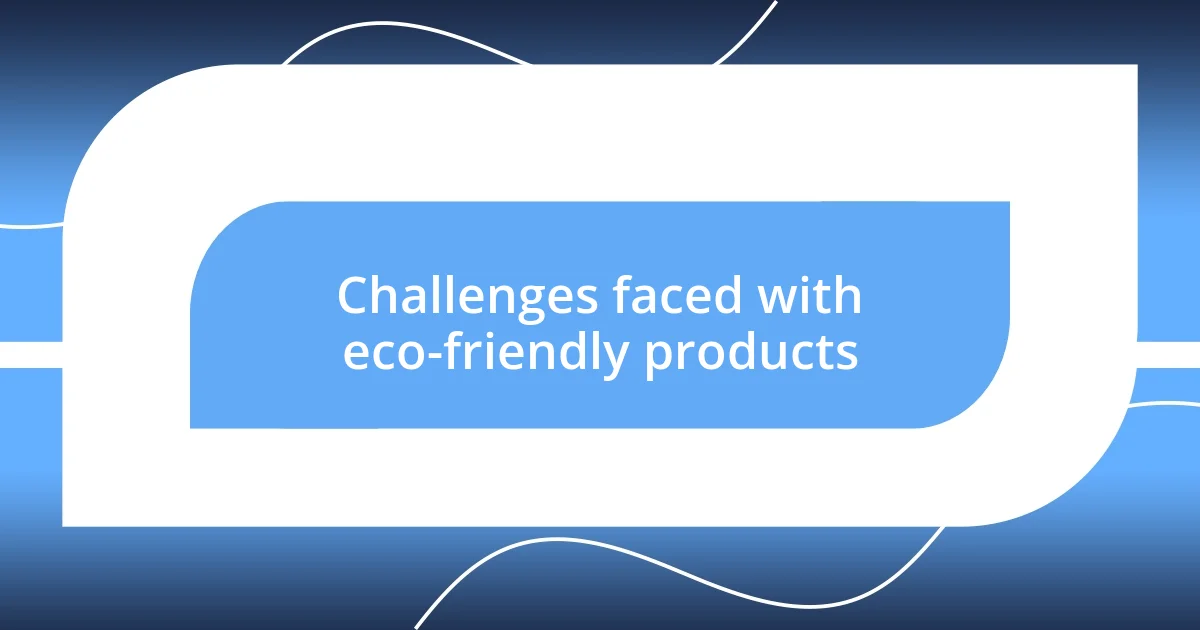
Challenges faced with eco-friendly products
Switching to eco-friendly products has certainly been a rewarding journey, but it hasn’t come without its challenges. For instance, when I first tried to find eco-friendly alternatives to my favorite skincare products, I quickly realized that options were limited. I felt frustrated standing in the aisles, wondering if I was sacrificing quality for sustainability. This made me question whether the choices I was making were impacting my skin as much as I desired.
Price is another significant hurdle I’ve encountered. Often, eco-friendly options can come with a higher price tag, which, at times, felt like a barrier. I remember eyeing organic cleaning sprays that seemed to cost twice as much as mainstream products. I had to remind myself that investing in these products was ultimately an investment in my health and the environment. This shift in perspective helped turn my initial reluctance into a more conscious decision-making process.
Lastly, I found it challenging to navigate the vast array of certifications and labels that claim to be eco-friendly. At one point, I bought a product proudly displaying “green” labels only to later discover that it wasn’t as sustainable as advertised. This experience left me feeling deceived and cautious about future purchases. It made me realize the importance of doing thorough research and becoming an informed consumer. Have you faced similar confusion while trying to discern which products are genuinely eco-friendly? I know I certainly have, but this journey has taught me to advocate for transparency and seek brands that truly align with my values.
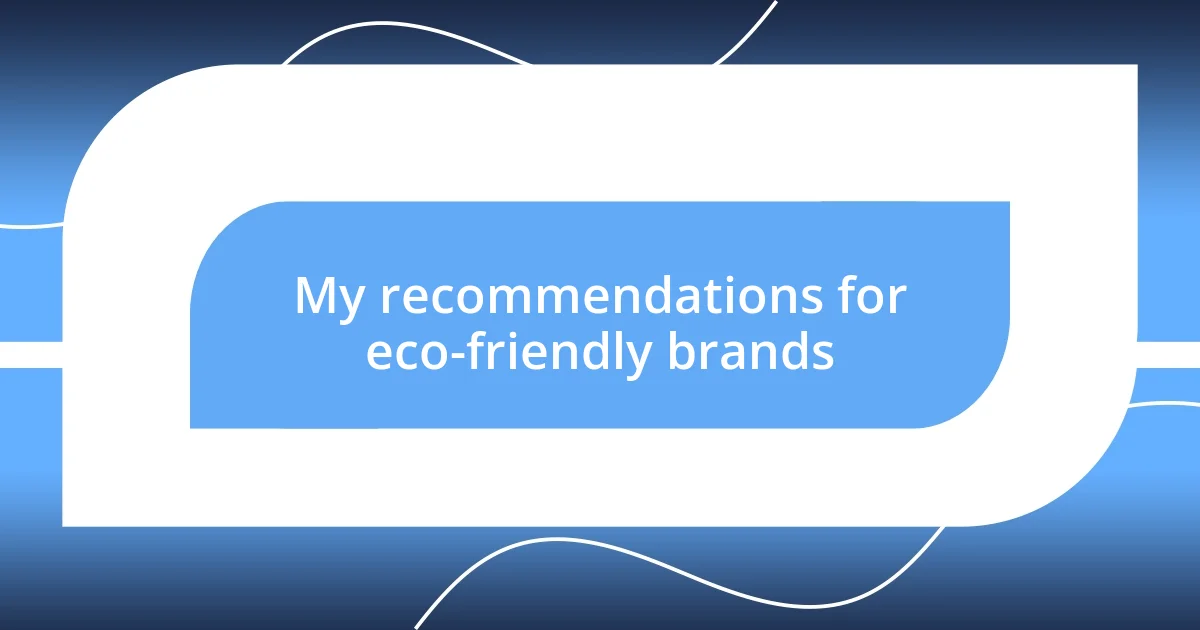
My recommendations for eco-friendly brands
When it comes to eco-friendly brands, I’ve had some truly eye-opening experiences. One standout for me has been Ethique, a brand that offers solid shampoo and conditioner bars. The first time I lathered up with their products, I was genuinely surprised at how well they performed compared to traditional options. The idea of eliminating plastic waste while enjoying a luxurious wash was exhilarating, and it made me think—why didn’t I make the switch sooner?
Another brand I can’t recommend enough is Seventh Generation for cleaning products. I vividly remember a moment when I used their all-purpose cleaner; the fresh scent of lavender filled my kitchen, and I knew I was cleaning without harming the environment. Their commitment to transparency in ingredients made me feel more empowered to tackle my household chores. I often wonder how many people still rely on harsh chemicals when there are effective alternatives available.
Finally, I’ve found a personal connection with Pact for organic cotton clothing. Not only do their clothes feel incredible against the skin, but knowing that each purchase contributes to fair trade and sustainable practices fuels my passion for shopping responsibly. Have you ever felt that rush of satisfaction from knowing you’re making a difference with your purchases? For me, every time I wear my Pact shirt, I’m reminded that eco-friendly choices don’t just benefit the planet—they also make me feel good inside.





